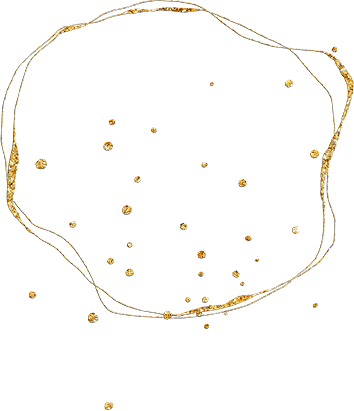What is Contact Dermatitis?
Eczema or dermatitis is an inflammatory skin condition that occurs when skin comes into direct contact with substances that irritate or trigger an allergic reaction.
There are two main types of Contact Dermatitis:
- Irritant contact dermatitis – Most common type; caused by direct damage to the skin’s outer layer from substances like soaps, detergents, and natural acids.
- Allergic contact dermatitis – Less common; occurs when the immune system overreacts to an allergen that touches your skin. Common triggers include:
- Nickel (in jewelry)
- Fragrances
- Preservatives
- Poison Ivy & Related Plants
- Cosmetics
Contact dermatitis is not typically contagious, but it can be uncomfortable and persistent if the trigger isn’t identified and avoided.
What Does Contact Dermatitis or Eczema Look Like?
Eczema or dermatitis is an inflammatory skin condition marked by redness, itching, weeping, crusting, and skin pigmentation. Environmental factors such as soaps, detergents, shampoos, dust mites, pets, pollens, mold, bacteria, viruses, and fungi are a few causes of eczema. Heavy metals such as mercury and lead can be the root cause of systemic inflammation and eczema. Sensitivity to dairy, soy products, eggs, nuts and seeds, and wheat can cause eczema.

Emotional stress can also make your symptoms worse and can make treatment difficult. Hormone imbalance affects the skin and worsens eczema. Many patients may suffer from atopic or contact dermatitis for years and go from doctor to doctor using only topical steroid ointments, salves and antibiotics but never get to the root cause of the condition. While there are natural treatments that can aid in reducing symptoms, many contact dermatitis patients may need additional help.

Most patients with chronic contact dermatitis also suffer from leaky gut syndrome and dysbiosis (imbalance between good and bad bacteria in the gut). They may have an overgrowth of yeast and sensitivity to it. It’s essential to rule out leaky gut syndrome, if present, treat it completely. Antifungals are sometimes used to treat candida and other fungal infections, which may be the underlying cause of dermatitis.
How Wildfires Can Impact Skin Health
Contact dermatitis itself can be triggered by environmental exposures, including environmental events like the fires in the Palisades. Smoke, ash, and other airborne chemicals released by overwhelming heat during wildfires act as irritants and break down the skin’s protective barrier, potentially leading to irritant contact dermatitis. If someone is already sensitive to allergens, these environmental particles increase the risk of allergic contact dermatitis by heightening immune responses.
In both cases, the skin may react with redness, itching, or rash, even if direct contact with the original fire source never occurs. Environmental factors beyond our control can contribute to flare-ups and worsen existing skin conditions.
IV Chelation Therapy: An Effective Natural Treatment for Chronic Contact Dermatitis.
We encourage patients to replace amalgam fillings safely and undergo IV chelation therapy to remove all heavy metals from their system. High-dose IV vitamin C protocol is also utilized in treating dermatitis. The intestinal function is optimized with supplements for eczema by using digestive enzymes, probiotics, glutamine, and aloe vera.
Holistic Natural Treatments to Fight Eczema:
- Strengthen your gut by taking probiotics and eradicating yeast and bad bacteria
- Take a high dose of Omega 3 fatty acids
- Chelate heavy metals such as mercury, lead, and aluminum
- Take digestive enzymes
- Treat parasites and small intestinal bacterial overgrowth
- Take Glutamine and Zinc
- Eliminate allergenic foods such as gluten, dairy, soy, corn, eggs, or citrus fruits
How to Learn More About Eczema / Contact Dermatitis Natural Treatment
Dr. Shiva Lalezar will treat the underlying causes of your dermatitis/eczema. She employs an integrative approach, combining the best conventional therapies with the latest techniques and treatments in Functional Medicine for optimal results.
Call the Health & Vitality Center at 310-477-1166 or click here to schedule an appointment. We are one of the leading Functional Medicine centers in Los Angeles.
Quick Answers
General Questions?
What is dermatitis?
Dermatitis is an inflammatory skin condition characterized by redness, swelling, itching, and sometimes blisters or peeling skin. It can result from various triggers, such as allergens, irritants, stress, or genetic factors. Common dermatitis includes atopic dermatitis (eczema), contact dermatitis, and seborrheic dermatitis. Each type has unique triggers and presentations, but all involve inflammation that affects the skin barrier, making it more susceptible to dryness, infections, and irritation. Functional medicine views dermatitis as a condition influenced by underlying issues like immune dysregulation, gut health, and environmental exposures, emphasizing a holistic, root-cause approach to treatment.
What is the functional medicine approach to treating dermatitis?
Functional medicine takes a holistic approach to dermatitis, focusing on finding and treating root causes like food sensitivities, gut health issues, environmental toxins, and hormonal imbalances. Rather than merely masking symptoms, functional medicine practitioners work to understand the individual’s unique triggers and develop a personalized treatment plan, which may include dietary changes, lifestyle modifications, supplements, and natural skin care to achieve lasting relief and prevent flare-ups.
How can food sensitivities affect dermatitis?
Food sensitivities, especially to common allergens like dairy, gluten, and eggs, can trigger or worsen inflammation, leading to dermatitis. Functional medicine often begins with an elimination diet to identify and remove these trigger foods from the diet, allowing the immune system to calm and reducing inflammation in the skin. Once identified, long-term dietary adjustments can support skin health and reduce dermatitis symptoms.
What role does gut health play in dermatitis?
Gut health is crucial in managing dermatitis, as the gut is closely connected to immune function and inflammation. An imbalanced gut, or “leaky gut,” can allow toxins and allergens into the bloodstream, leading to inflammation and skin issues. Functional medicine addresses gut health through probiotics, prebiotics, and gut-healing nutrients, aiming to restore balance in the digestive tract and reduce skin-related symptoms.
Can stress contribute to dermatitis flare-ups?
Yes, stress can exacerbate dermatitis by increasing cortisol and other stress hormones, weakening the skin’s barrier, and worsening inflammation. Functional medicine emphasizes stress management techniques like mindfulness, meditation, and regular physical activity to help manage cortisol levels. By managing stress, patients can help reduce flare-ups and support overall skin health.
How does environmental exposure impact dermatitis?
Environmental toxins, pollutants, and allergens can aggravate dermatitis. Functional medicine practitioners often recommend reducing exposure to chemicals in personal care products, household cleaners, and certain foods. They may also suggest air purifiers, avoiding synthetic fragrances, and other practices to minimize exposure, which can help reduce dermatitis symptoms and improve skin resilience.
Why is an anti-inflammatory diet recommended for dermatitis?
An anti-inflammatory diet rich in fruits, vegetables, omega-3 fats, and antioxidants can help reduce systemic inflammation, a common underlying factor in dermatitis. Functional medicine practitioners often encourage patients to eat nutrient-dense, unprocessed foods to reduce inflammation, support immune health, and promote clear skin. Reducing processed foods, sugar, and inflammatory oils is also key to this approach. Nightshade vegetables should also be eliminated from the diet.
Are probiotics beneficial for managing dermatitis?
Yes, probiotics are often beneficial for dermatitis as they support gut health, which is closely linked to skin health. Functional medicine practitioners may recommend probiotics to help balance gut flora, reduce inflammation, and strengthen the skin’s barrier. Probiotic-rich foods, such as yogurt, kefir, and sauerkraut, or specific probiotic supplements can help manage dermatitis symptoms by promoting a healthy gut.
Can hormonal imbalances contribute to dermatitis?
Hormonal imbalances, particularly in cortisol, estrogen, and thyroid hormones, can contribute to inflammation and skin sensitivity. Functional medicine practitioners often assess hormonal health and may recommend diet, lifestyle changes, and natural supplements to support hormonal balance. Addressing these imbalances can reduce dermatitis symptoms and improve overall skin health.
How does hydration affect dermatitis?
Hydration is essential for maintaining the skin’s natural barrier function and preventing dryness, which can worsen dermatitis. Functional medicine practitioners encourage adequate water intake and sometimes recommend avoiding dehydrating substances like caffeine and alcohol. Proper hydration supports skin elasticity and barrier function and helps the body efficiently remove toxins, all of which can benefit those with dermatitis.
What role do nutrient deficiencies play in dermatitis?
Certain nutrient deficiencies, such as vitamin D, zinc, and omega-3 fatty acids, can worsen skin inflammation and reduce the skin’s ability to heal. Functional medicine practitioners often assess and address deficiencies through dietary changes and supplements to improve the skin’s resilience and manage dermatitis symptoms. A nutrient-dense diet helps strengthen the skin’s protective barrier and reduces inflammation.
How does functional medicine approach detoxification for dermatitis?
Functional medicine often incorporates gentle detoxification to reduce the body’s toxic load, which can contribute to inflammation in dermatitis. Strategies may include increasing fiber intake, drinking water, and consuming liver-supportive foods like leafy greens and cruciferous vegetables. Functional medicine practitioners might also recommend specific supplements to support liver function and encourage natural detoxification, aiming to reduce skin inflammation. Heavy metals such as lead, aluminum, cadmium, nickel, and gadolinium are also removed from the body through IV and/or oral chelation therapy.
What are common lifestyle recommendations for managing dermatitis?
Functional medicine practitioners recommend a balanced lifestyle, including stress management, adequate sleep, regular exercise, and avoiding environmental toxins. These lifestyle factors can support immune health, reduce inflammation, and help manage dermatitis. Regular physical activity, mindfulness practices, and minimizing chemical exposures can improve symptoms and skin resilience.
How does functional medicine address flare-ups of dermatitis?
In functional medicine, managing flare-ups often involves a combination of immediate symptom relief and addressing the underlying triggers. Practitioners might recommend soothing natural skin products, dietary adjustments, or supplements that reduce inflammation quickly. Functional medicine also aims to identify and remove any exacerbating factors, helping to prevent future flare-ups.
What are functional medicine’s views on using steroids for dermatitis?
Functional medicine prefers to minimize reliance on steroids, as they can have long-term side effects. Instead, it aims to treat underlying causes naturally and support overall health. However, in severe cases, steroids may be used temporarily while implementing longer-term strategies to manage dermatitis through dietary and lifestyle changes, aiming to reduce inflammation sustainably.
Why is sleep important for dermatitis management?
Sleep is critical for skin health and immune function. Functional medicine practitioners emphasize good sleep hygiene because poor sleep can increase cortisol levels, reduce skin repair, and worsen inflammation. Prioritizing restful sleep helps regulate stress hormones and strengthens the skin’s ability to heal, which can significantly benefit those with dermatitis.

Have additional questions?
We’re here to help. Let’s talk.
Contact





